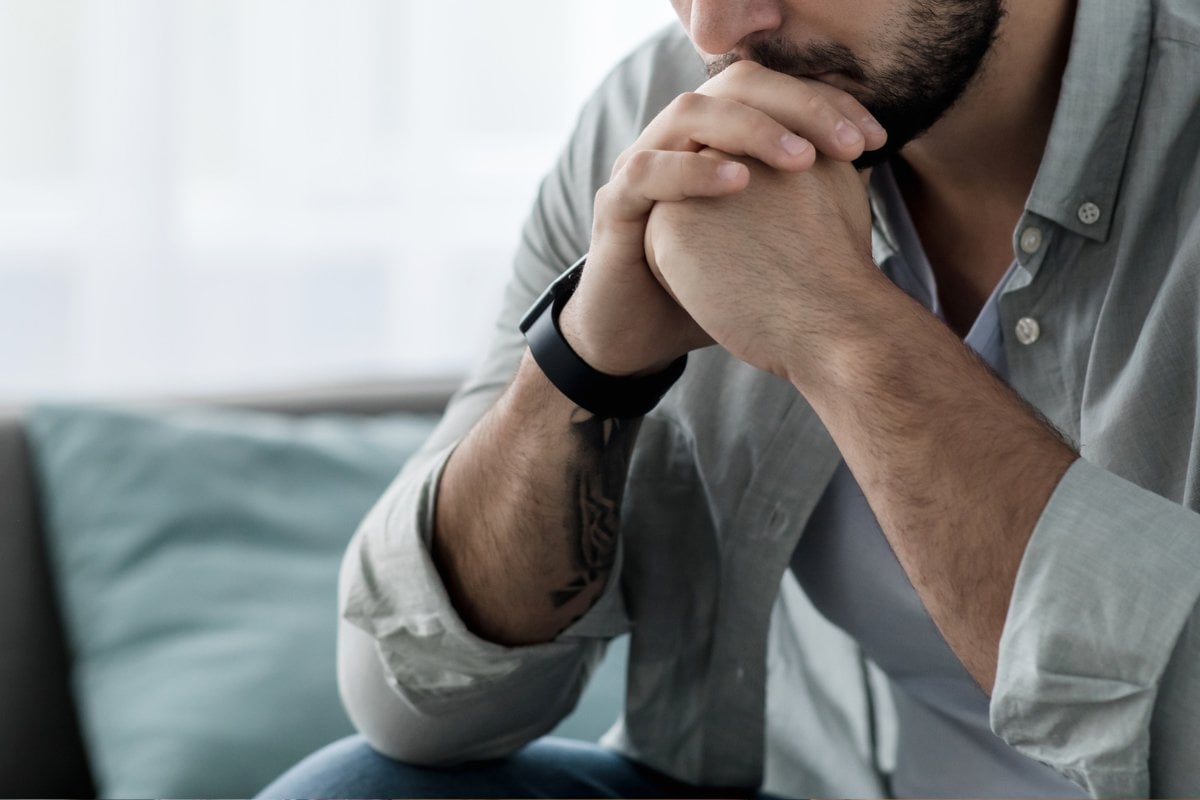
Content warning: This story deals with domestic violence and may be distressing to some readers.
*Joe will never forget the day he was served with a family violence intervention order for abuse against his separated wife and children. Nor should he forget.
It was a sunny afternoon in June 2018 when a police car pulled up in his driveway and knocked on his door.
"I was like, 'What's going on here?' And then the officer explained about the violence intervention order. It stated I was not to go near my ex-wife or children before a subsequent court case," he tells Mamamia.
"It was heartbreaking to read what I had done, including accusing her of mismanaging the finances so I could control the money, complaining that our son was just another mouth to feed now that he was born, verbally abusing her and making her friends feel too uncomfortable to visit, which isolated her as well.
"I had made her feel unsafe in her own home."
It was this interaction with police that led Joe to want to change.
Watch: women and violence, the hidden numbers. Post continues below.

Top Comments